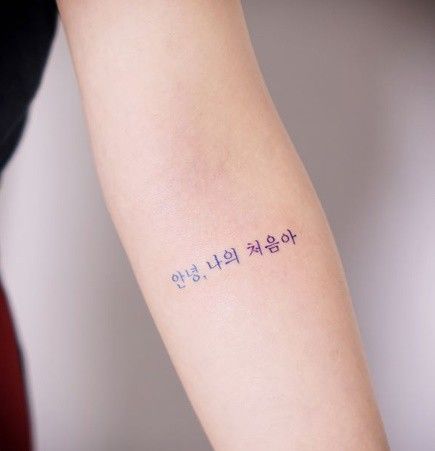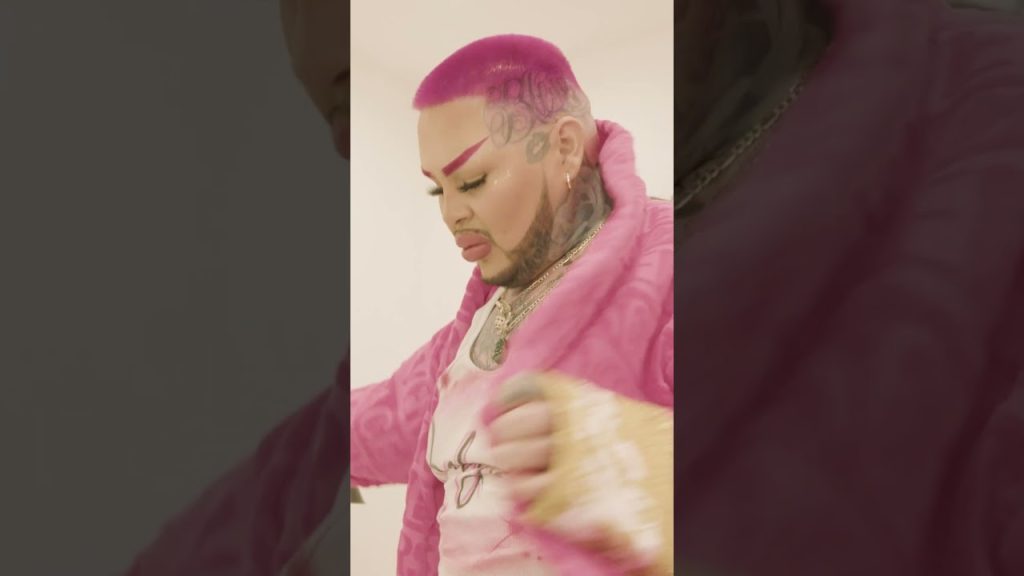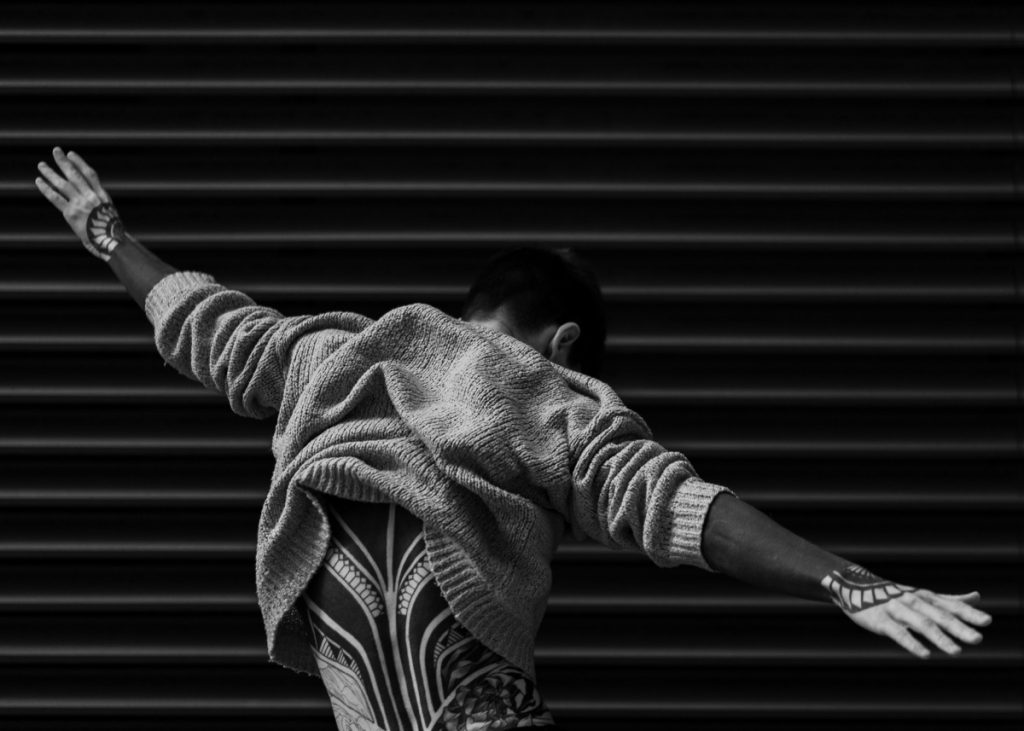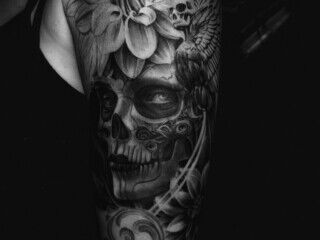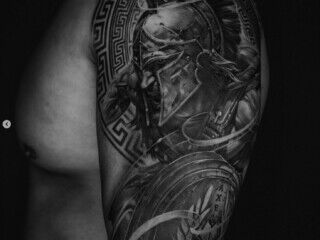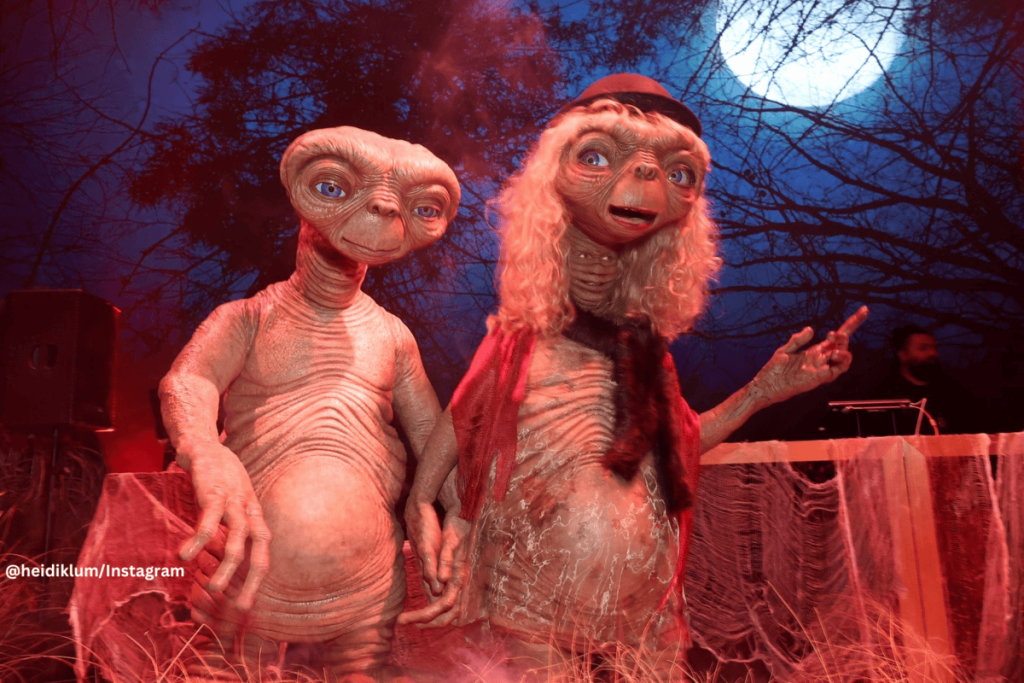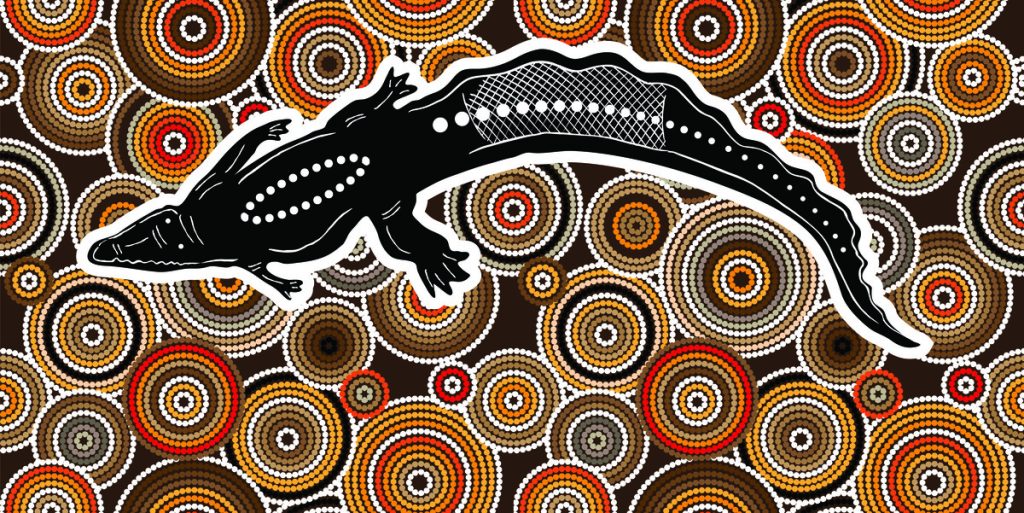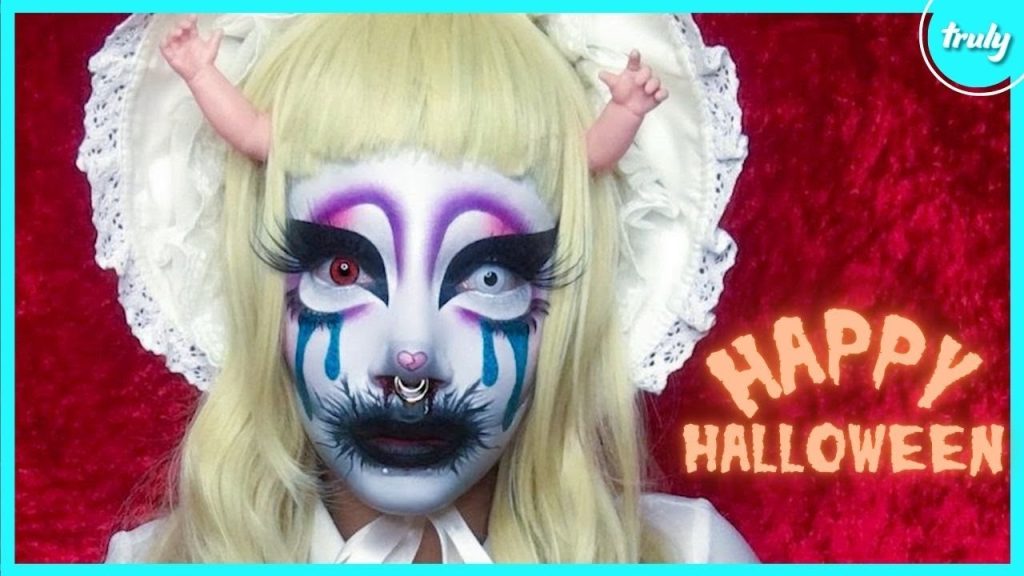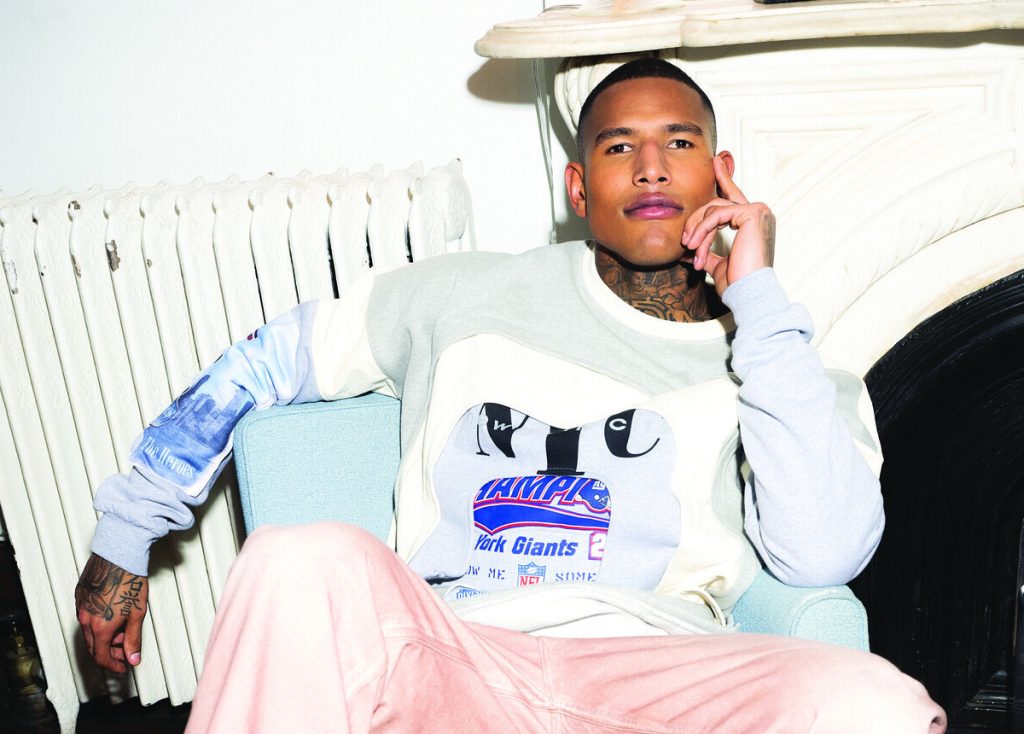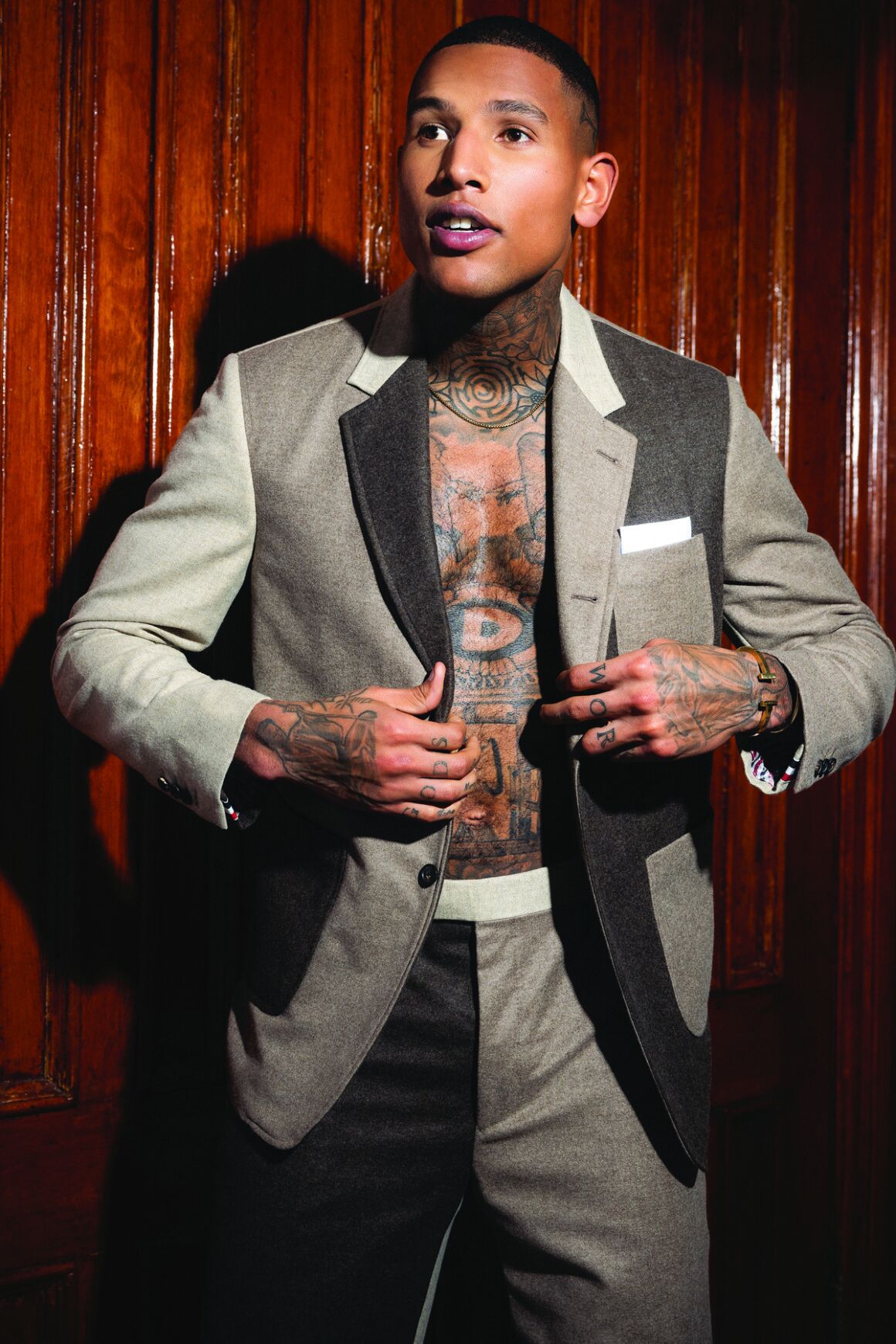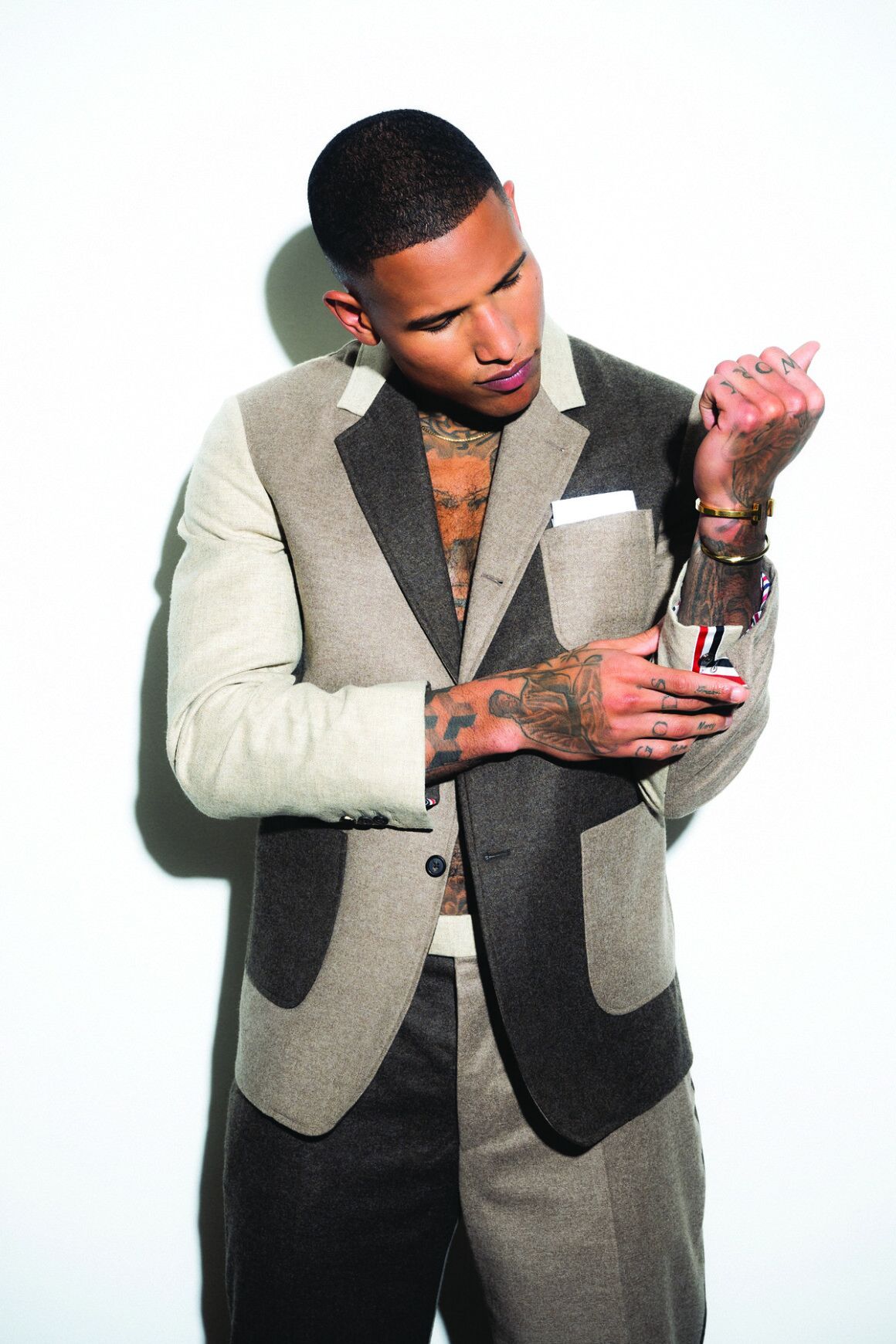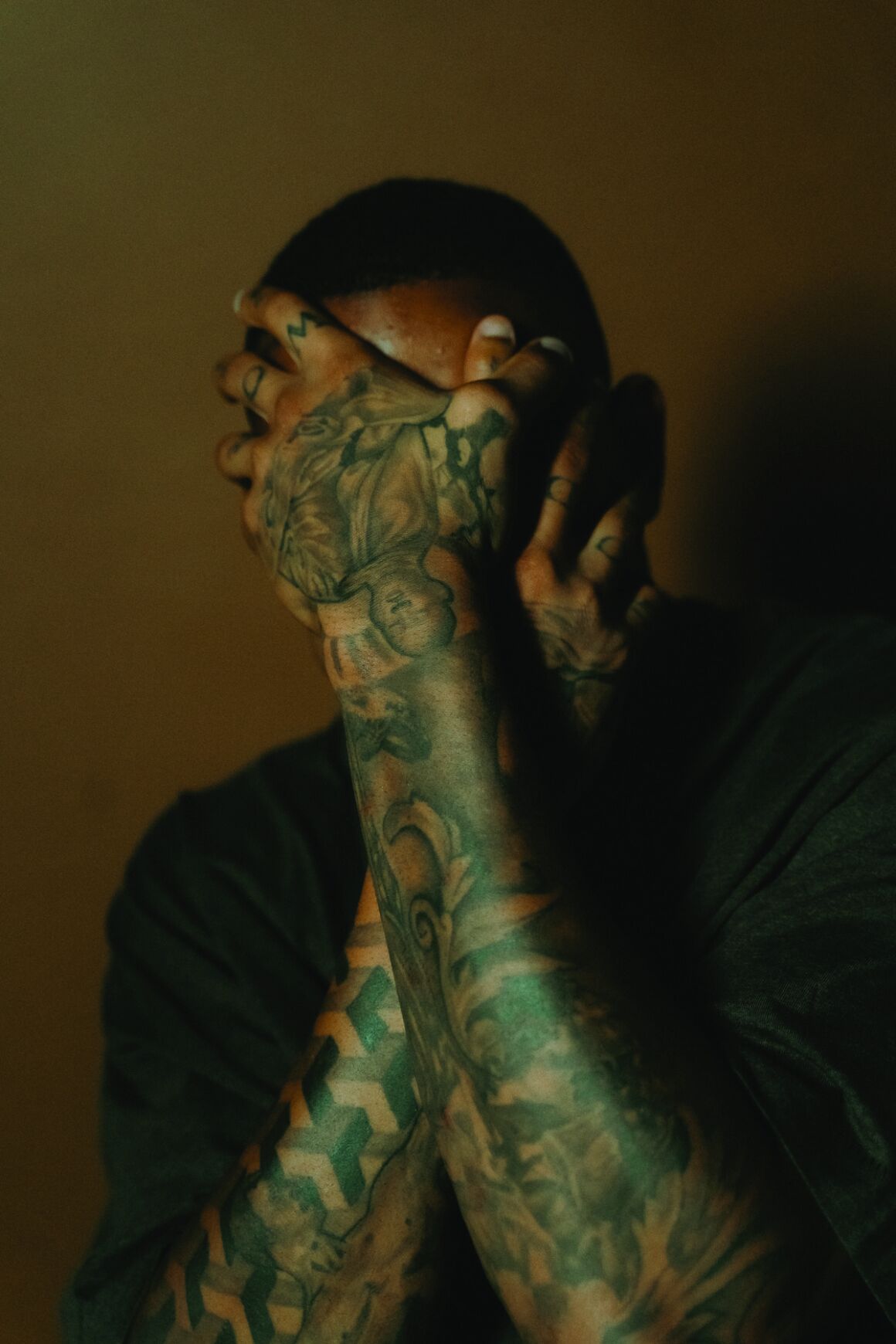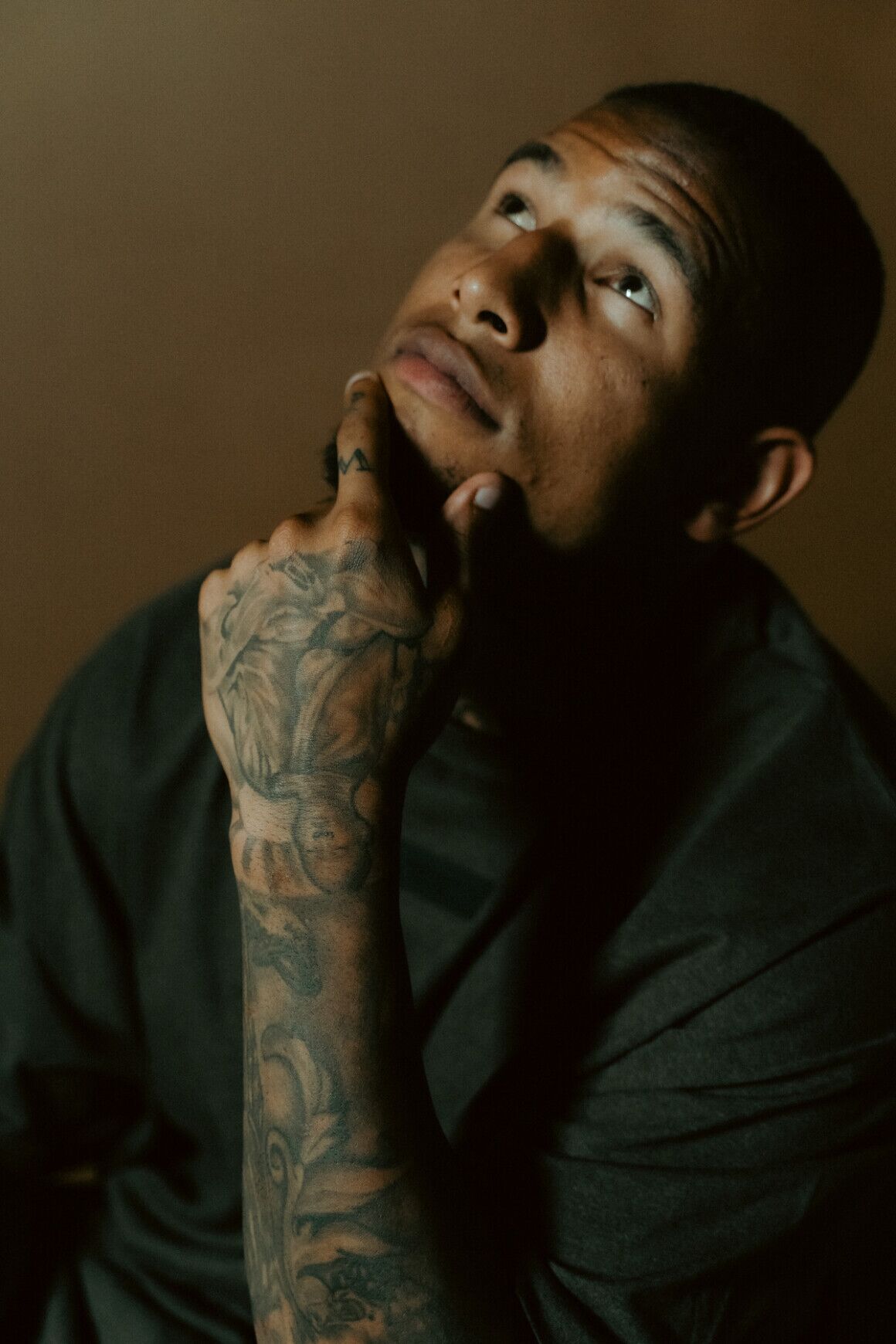SUBSCRIBE to Truly: http://bit.ly/Oc61Hj TRULY favourite, Nicole, is back. The self-confessed surgery addict has already …
Source from https://www.youtube.com/watch?v=JQ0cUZRoJkY
240+ Korean Tattoos Words With Meanings (2024)
There are a lot of great Korean tattoos ideas out there. If you’re looking for a unique and meaningful Korean tattoo design then look no further as we have compiled a list of the finest tattoos that depict Korean culture.
Just like in other countries, Koreans also have unique tattoos. These tattoos often hold special meanings and are used to represent important aspects of one’s life.
History of Tattoos in Korea
Korea has a long history of tattooing. It is believed thaHistory of Tattoos in Koreat the practice began during the Neolithic Period (12000-8000 BCE). Tattoos were used to mark criminals and outcasts. Today, they are more commonly seen as a form of body art. Several different designs and symbols are popular in Korean tattoos. Some of the most popular include dragons, tigers, phoenixes, and lotus flowers. Each symbol has its meaning and symbolism.
Please note that when we talk about Korean tattoos we are mostly covering south Korean culture but many artists have displayed iconic designs that show north Korean culture as well.
North Korea is under dictatorship but many people choose to show their solidarity with the people of North Korea by getting their cultural symbols inked on the body.
In 2018, an unnamed photographer leaked several photos of north Korea online. Photography and social media are banned in North Korea. Not only this but the locals have to face many hardships in their day-to-day life as was evident from the forbidden photos.
The 21 photographs released online have been adapted into various art forms. Many people even chose to get those scenes permanently inked on their bodies. This is a unique idea that has deep meaning as well.
South Korea, on the other hand, is a progressive democratic country that has not only given iconic K-pop bands (Hello, BTS fans) but also several tech giants such as Samsung and LG.
Popular Korean Tattoos Designs
There are many different Korean tattoo designs that you can choose from. If you are looking for something unique, then you may want to consider a traditional Korean design. These tattoos often feature intricate patterns and symbols that have meaning within the culture.
If you are looking for something a little more modern, then you can opt for a tattoo that features more of a graphical approach. These types of designs often incorporate geometric shapes and lines.
One popular type of Korean tattoo is the hanbok tattoo. Hanbok is the traditional Korean clothing worn during special occasions. These tattoos are usually very colorful and intricate, and often depict scenes from nature or Korean folklore.
Another popular tattoo design among Koreans is the dragon tattoo. Dragons are a symbol of power and strength in Korean culture, so it’s no surprise that many people choose to ink them onto their skin. Dragon tattoos can be small and simple, or large and detailed – it all depends on the wearer’s preference.
Symbolism and Meanings of Korean Tattoos
Korean tattoos often have deep meanings and symbolism behind them. They can be used to represent your heritage or culture or to show your love for Korea.
Some popular Korean tattoo designs with meanings are:
– The Dragon: The dragon is a powerful symbol in Korean culture, and is often associated with strength and courage. Dragons can also represent wisdom and good luck.
– The Tiger: The tiger is another popular choice for Korean tattoos. Tigers are known for their speed, agility, and power, and are often seen as a symbol of protection.
– The lotus flower: The lotus flower is a symbol of purity and enlightenment. In Korean culture, the lotus flower is seen as a representation of new beginnings.
– The chrysanthemum: The chrysanthemum is a symbol of good luck and prosperity. Chrysanthemum flowers are often given as gifts to celebrate special occasions.
– The crane: The crane is a symbol of long life and good health. In Korean culture, the crane is often seen as a messenger of peace.
There are many other great Korean tattoo ideas out there. These are just a few of the most popular designs that people choose.
Korean Tattoos Placement
There are a few things to consider when choosing the placement of your Korean tattoo. First, think about what the tattoo will represent and how it will be seen by others. If the tattoo is for personal meaning, then you may want to choose a placement that is easily hidden. However, if you want your tattoo to be visible to others, then you’ll need to choose a more exposed placement.
Another thing to consider is the size of the tattoo. Smaller tattoos can be placed almost anywhere on the body, but larger tattoos may need to be placed on larger areas such as the back or chest.
Finally, consider your lifestyle when choosing a placement. If you have a job that requires you to be in close physical contact with others, then you’ll want to avoid places that would be easily seen by others. On the other hand, if you have a more active lifestyle, then you may want to choose a placement that is less likely to be damaged by physical activity.
Once you’ve considered all of these factors, you should have a better idea of where you want your Korean tattoo placed. If you’re still not sure, then consult with a tattoo artist to get their opinion on the best placement for your tattoo.
Check out this photo gallery of 240+ Korean Tattoo designs for men and women
Aesthetic Korean tattoos For Men






























Minimalist Korean Tattoos for Women
Also Read Dove Tattoos




























































































































Traditional Korean Tattoo Designs
































































Tattoos on Korean Language
























































































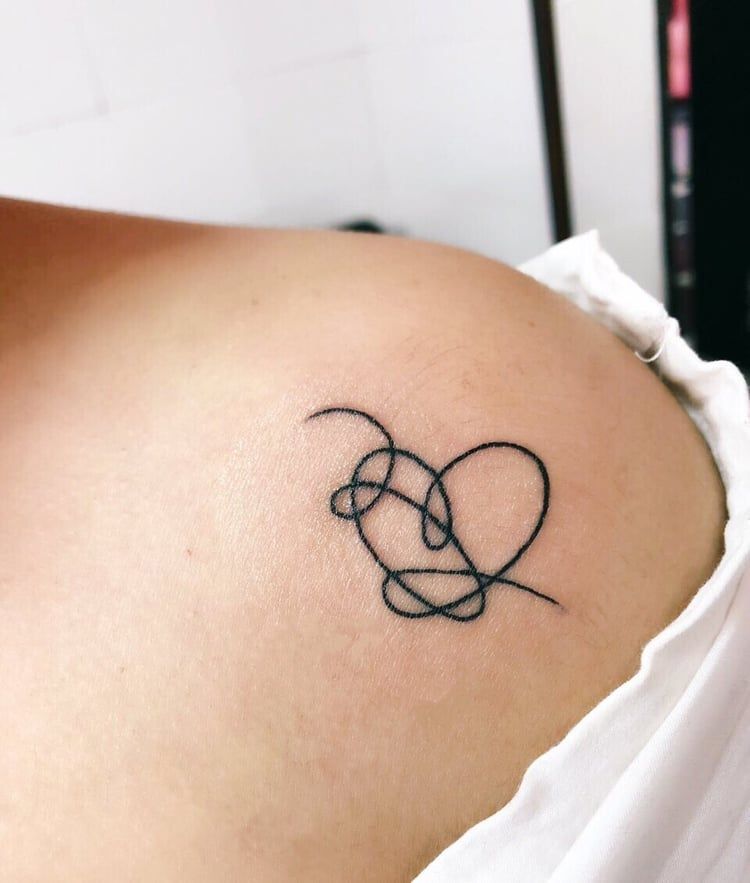































































































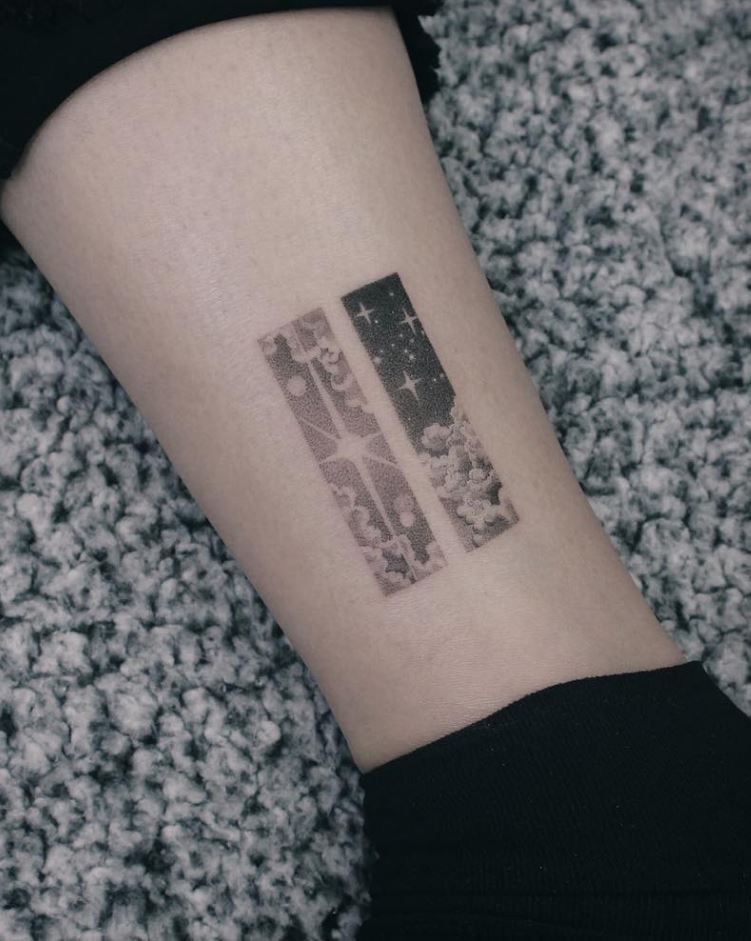



















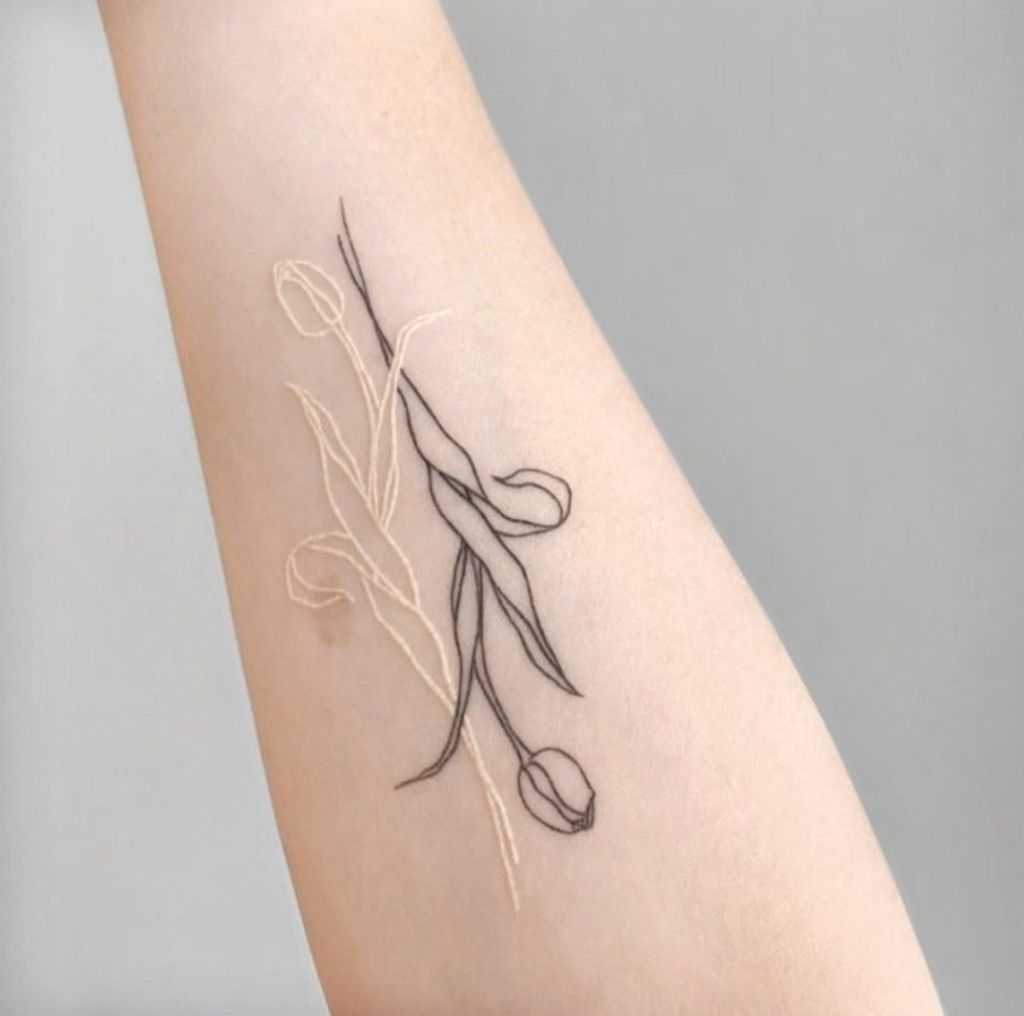



















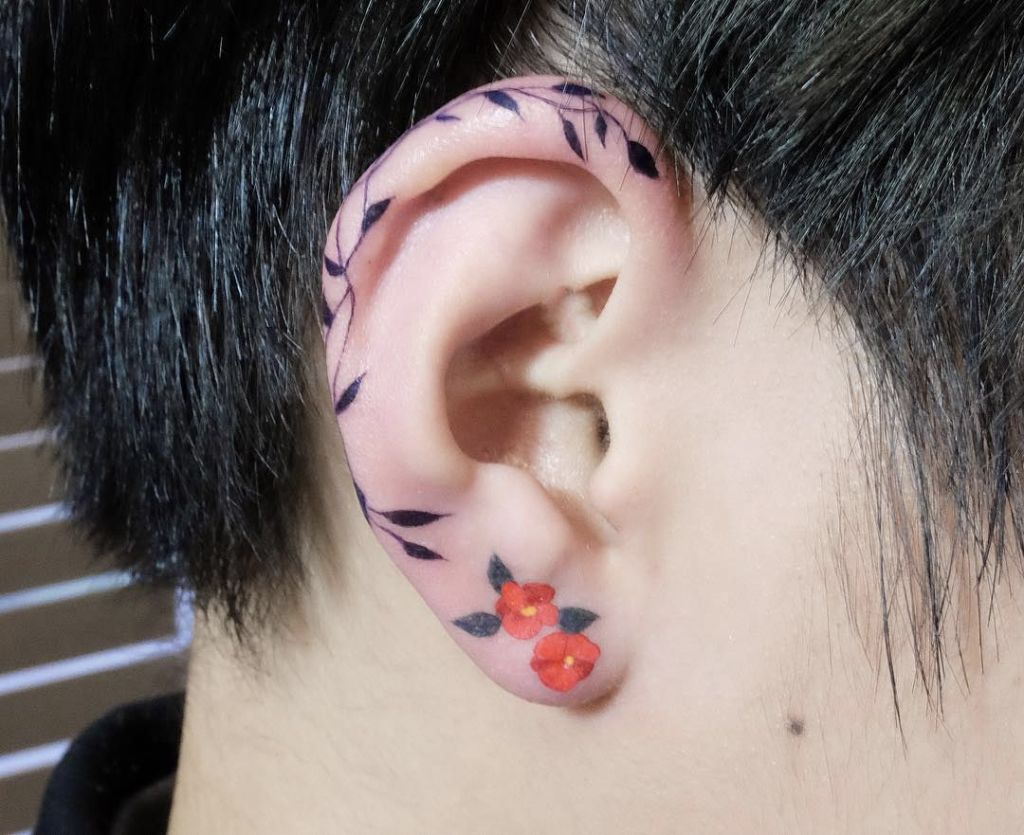

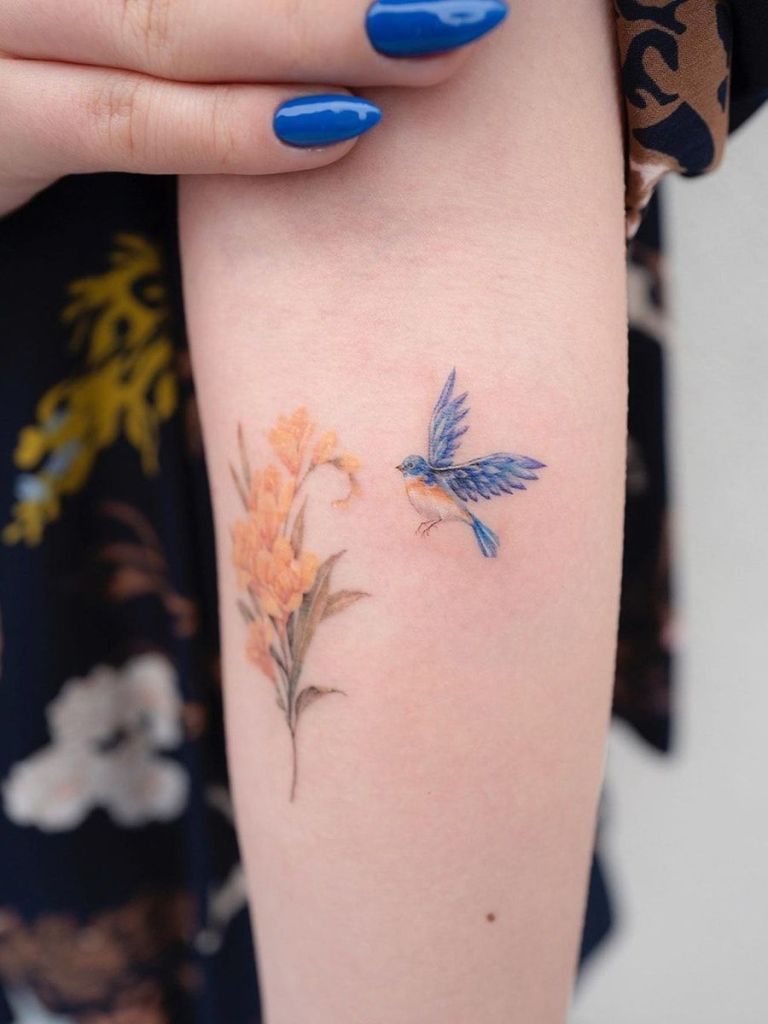

































Conclusion
If you’re thinking about getting a Korean tattoo, be sure to do your research first. Talk to different tattoo artists and get their opinion on the best design for you. And most importantly, choose a design that has personal meaning to you – after all, it’s going to be on your body for life.
References: Korea Wiki
I love looking like a plastic plus-size barbie 💅 #ytshorts #plasticsurgery #sweet16 #luxurylifestyle
SUBSCRIBE to Truly: http://bit.ly/Oc61Hj Videographer: Producers: Editor: If you have an amazing story and want to appear on the …
Source from https://www.youtube.com/watch?v=gZsS5TpU1c8
My Ex-Husband Slept With My Dad & I Got HIV | LOVE DON'T JUDGE
SUBSCRIBE to Truly: http://bit.ly/Oc61Hj BRENDA was HIV positive when she fell in love with her husband, Brandon.
Source from https://www.youtube.com/watch?v=Kl4gpSOma00
Filled to Capacity – InkedMag
In the bygone days preceding the 2000s, the solution to covering up a tattoo was often straightforward: get a larger, darker tattoo to cover up existing ink. However, such cover-up tattoos were seldom masterpieces; they were typically chosen out of sheer disdain for the old tattoo, with any alternative appearing preferable. Alternatively, some celebrities, such as Pharrell Williams, resorted to skin grafts or extensive laser surgery to rid themselves of unwanted tattoos. Yet, as the art form of tattooing continued to evolve, so did the array of options available.
Enter the era of blackout and blast-over tattoos, the “new” solutions to the age-old dilemma. Both styles leverage heavy blackwork to transform the body, albeit with distinct approaches aimed at erasing or honoring the past.
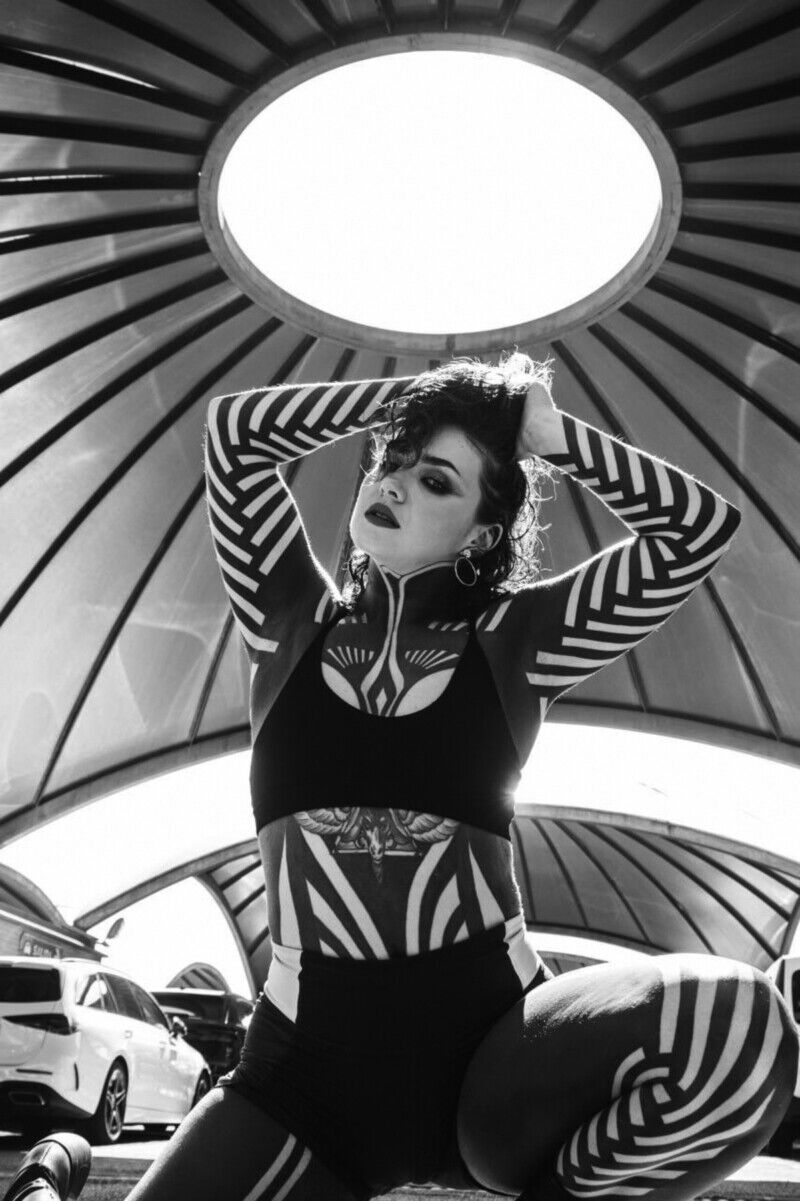
A blackout tattoo is unmistakable — it involves saturating a part of the body with black ink. This could range from simply obscuring a previous tattoo, a practice with historical roots spanning centuries, to crafting intricate designs that accentuate the body’s contours in striking, otherworldly ways. Celebrities such as Kat Von D or Ronnie Radke are at the forefront of bringing this approach to tattoos into the minds of the general populace, choosing blackouts to cover up artwork that no longer represents them.
On the other hand, blast-over tattoos utilize the negative space within tattoo designs, offering glimpses into past tattoos and colors concealed beneath. Blast-over work often incorporates traditional tattoo art due to its simplicity and clarity, foregoing colors, and shading for readability.
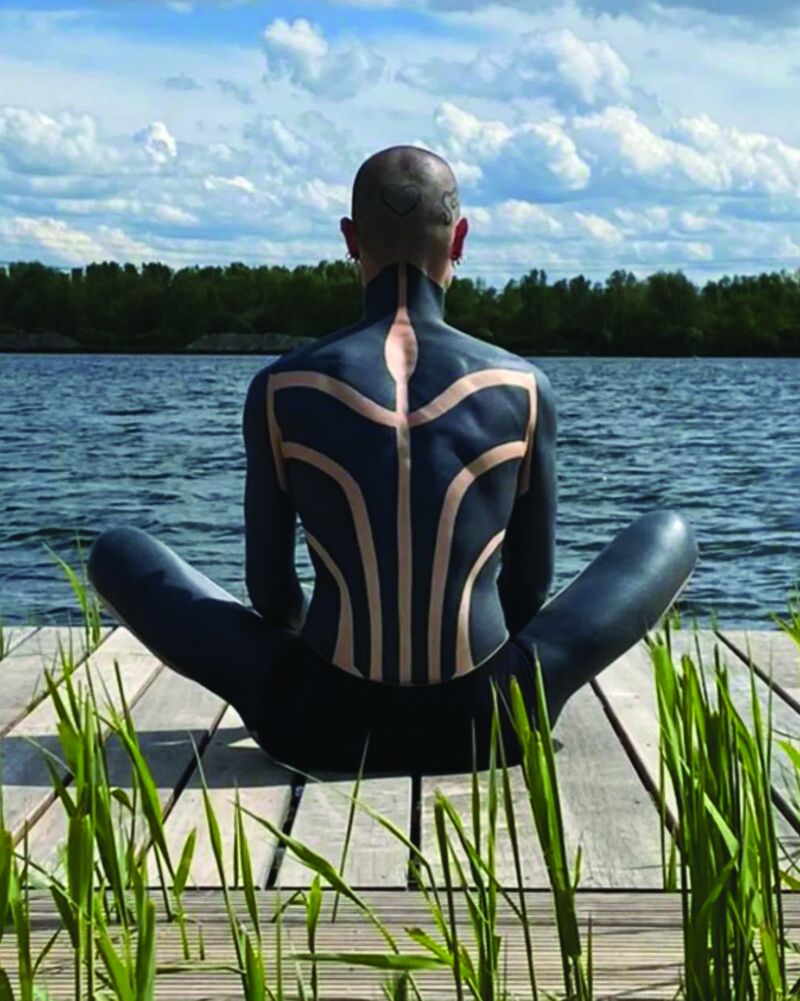
Machine Gun Kelly’s latest tattoo appears to be a fusion of both styles. Though dubbed a neck tattoo, it stretches down to his forearms and encompasses his entire chest. Created by the artist known as Roxx (@roxx___), MGK’s tattoo extends from nape to navel with the majority of the blackwork concentrated on his chest and shoulders, and concentric bands snaking down his arms, allowing glimpses of his prior tattoos, ending at the wrist in a pattern reminiscent of circuitry. Across his chest is a large crucifix created through negative space. A sort of optical illusion, the design seems to broaden his chest whilst simultaneously narrowing his shoulders and extending his arms.
Most of the publicly available representation of extensive blackout work lies within the world of modeling, with only a handful of adopters of the style in the ranks of mainstream celebrity. Models such as Tina Alexandra (@tinaxanda) perfectly showcase the vision of artists keen to change the shape of the human into something not achievable through conventional means like diets or surgeries. Alexandra’s tattoos focus on drawing the eye to stereotypically desirable feminine traits, giving her body curves similar to that of an anime character, drawing the waist in and accentuating the hips, elongating the limbs and neck, and widening the chest. It’s an amazing effect but one that only comes about from an almost physician-level understanding of the unique anatomy, the contours of muscles, and how shapes form and change as the person moves.
Despite specializing in exquisite anime tattoo work, tattoo artist Michela Bottin-Ackerman sports blackout tattoos that cover much of her body. She spoke of a project known as “Brutal Black,” which aims to push artistic and physical boundaries, transforming the body into an ethereal, almost alien canvas.
The project, ironically, started without the idea of art and instead prioritized the pain of tattooing. Valerio Cancellier, Cammy Stewart, and Phillip 3Kreuze, the tattoo artists behind the Brutal Black Project, wanted to emphasize the transformative nature of tattooing and incorporate the adage “what doesn’t kill me…” believing the client would be mentally and physically transformed by the pain and overall process. Stewart said the design of these tattoos was never decided, but instead created spontaneously with the individual client, leading to the chaotic and multi-layered design work.
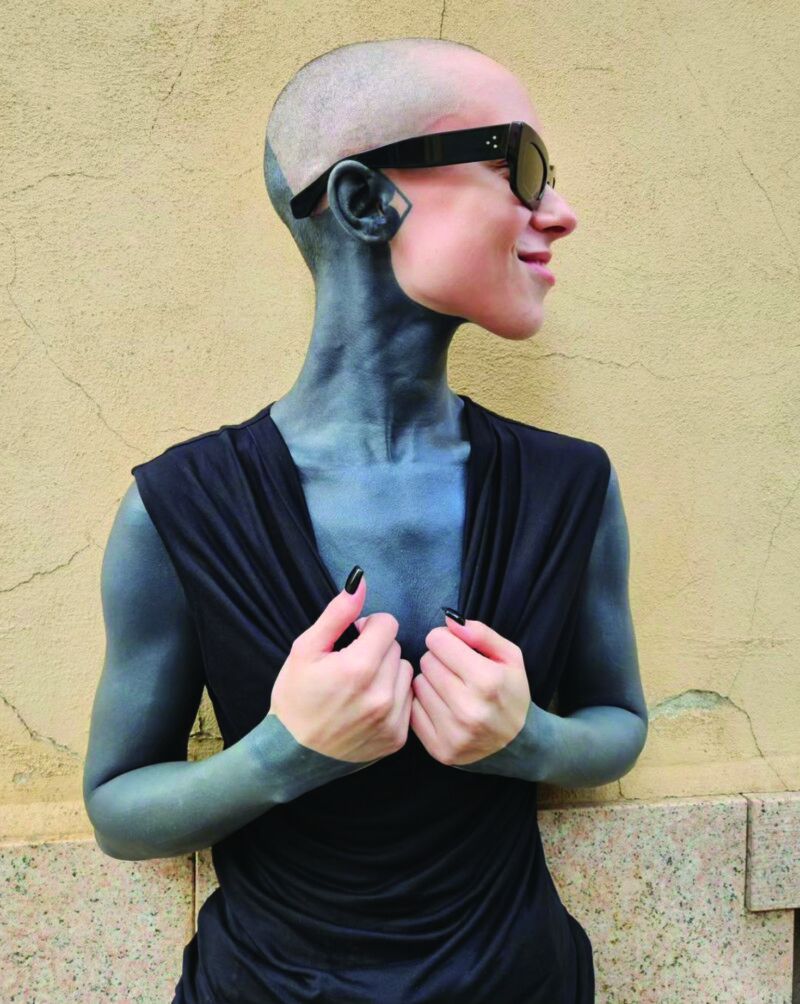
The processes during the aforementioned project differ slightly from that of a conventional blackout — individuals often have messages or images tattooed before being covered over, imbuing the ink with secret meanings known only to them. These layers of significance create a depth akin to a puzzle, where meanings upon meanings emerge. Images that vanish at a casual glance reveal themselves like hidden treasures, reminiscent of a magic eye picture, catching the light just right or surfacing subtly over time through healing or aging, similar to attempting to match different shades of black clothing.
Moreover, there’s a tactile dimension to blackout tattoos that transcends traditional art forms. While paintings or sculptures may degrade over time, offering fleeting glimpses into their past, blackout tattoos endure as a constant evolution. This uniqueness adds to their beauty, presenting a canvas where past iterations shine through, each layer contributing to a rich and multi-layered tapestry.
Another remarkable example of evolving blackout art is Remy (@ephemeral_remy). Remy transformed his body into an ongoing art project, covering 90% of his skin with tattoos. Each layer represents a chapter in his narrative, similar to an artist reusing a canvas. Though in the realm of traditional art, the reuse of a canvas is conventional; often the new piece completely eradicates the old. The human body also serves as a unique canvas where past iterations subtly manifest, adding depth and complexity to the overall composition.
The emergence of blast-over tattoos is a potential middle ground to blackout tattoos. Tattoo artists like Ricardo Da Silva Cunha and Caleb Blansett have pioneered the style, encouraging the pursuit of growth and self-actualization — ink may be permanent but, just like people, there can and should be layers. The use of American traditional imagery as the covering piece further pushes that idea, often covering colorful works of different styles with “flash” designs of yesteryear, completed using thicker lines and no shading, and routinely using only black ink.
In essence, blackout and blast-over tattoos enable individuals to walk hand-in-hand with their past, present, and future selves — a testament to the enduring power of self-expression through ink. Far from erasing the past, these tattoos celebrate it, offering a surface for the depiction of the journey of self-reverence and growth.
Looking for more inked content? Check out our other articles here!
Austin City Limits 2024: Tattooed Icons and Epic Performances – Copy 1
The Austin City Limits (ACL) Music Festival returned in 2024 with its signature blend of eclectic sounds, creative freedom, and edgy vibes—making it a perfect fit for the Inked community. As a haven for self-expression, ACL has long attracted artists and fans who embrace individuality, and this year’s lineup showcased plenty of musicians sporting ink that speaks to their unique journeys.
Here’s our roundup of the tattooed artists who left their mark on ACL 2024.
Teddy Swims: Soul Meets Ink

Teddy Swims captivated the crowd with his powerful voice and equally striking tattoos. Known for his unique mix of soul, pop, and R&B, Swims’ ink is as much a part of his image as his genre-blending sound. His sleeves are full of personal tributes and symbols representing his journey through the music industry. Performing his hits, Swims brought a raw, emotional vibe to ACL that connected with fans on a personal level—his inked arms adding to the emotion and intensity of his set.
Orville Peck: Mysterious Inked Cowboy

Orville Peck, the masked country star known for blending Americana with outlaw country, stole the show with his haunting melodies and unmistakable look. His tattoos add to his mystique, peeking out from under his fringed outfits and cowboy hats. Each piece of ink seems to nod to his rugged, otherworldly persona, embodying his music’s dark, wild aesthetic. Peck’s ACL set delivered a mix of twang and theatricality, his tattoos enhancing the allure of his enigmatic stage presence.
Dom Dolla: Inked Beats in the Heart of EDM
Australian DJ and producer Dom Dolla brought the energy to ACL with his electrifying house beats, lighting up the festival’s dance scene. His tattoos—clean, geometric designs that often mirror his sharp aesthetic—are as bold as his music. Dolla’s set had fans dancing from start to finish, and his ink added a layer of edge to his look. As an artist who bridges underground club vibes with mainstream appeal, his inked style complemented his dynamic, crowd-moving beats.
Kehlani: Empowerment Through Ink
Kehlani lit up the ACL stage with her R&B-infused pop and tattooed artistry. Her tattoos, known for their powerful symbols and detailed script, reflect her journey through love, resilience, and self-empowerment. Pieces like her “Perdida y Encontrada” (Lost and Found) tattoo show her commitment to growth and personal evolution, which resonates deeply with her fanbase. Kehlani’s set was equal parts vibrant and vulnerable, her tattoos visible reminders of her resilience and the personal battles woven into her music.
Blink-182: Punk Legends Still Making a Mark
Blink-182 brought a dose of nostalgic punk energy to ACL, reminding fans of the rebellious spirit it has championed for decades. Known for their energetic sound and humor-laden lyrics, the band’s members are also known for their iconic ink. Travis Barker, with his head-to-toe tattoos, has long been a tattoo culture icon, his ink symbolizing both personal milestones and his journey as a rock star. The band’s performance was a nod to the golden era of pop-punk, with tattoos as essential to their identity as the music itself.
Dua Lipa: Pop Icon with Subtle, Meaningful Ink
Dua Lipa’s ACL debut brought high-energy pop hits and an effortlessly cool aesthetic that had fans singing along from start to finish. Known for her sleek and understated tattoo collection, Dua’s ink reflects her personal milestones and growth as an artist. From delicate script on her hands to small symbols representing love and friendship, her tattoos are subtle yet meaningful. Much like her music, the pop star’s tattoos showcase her evolving identity and confidence, adding an intimate layer to her polished pop persona. Her ACL performance was a dynamic blend of style and substance, proving that, for Lipa, every detail—including her ink—tells a story.
Chappell Roan: Fearless Expression Vocalized

Chappell Roan brought her vibrant energy and unapologetic style to ACL 2024, captivating the crowd with her genre-bending pop anthems and theatrical stage presence. Known for her expressive, edgy aesthetic, Roan’s tattoos are an extension of her bold personality and fearless approach to music. Her ink is a mix of playful designs and personal symbols that add to her quirky charm, each piece reflecting her journey of self-discovery and creative freedom. With her colorful outfits and powerful voice, Roan’s ACL set was a tribute to individuality, proving her as an artist who’s not afraid to make a statement—in both music and ink.
This year’s ACL was more than just a festival—it was a celebration of resilience, creativity, and individuality. From rising stars to seasoned icons, the performances and energy reminded us that music brings people together, inspiring all who come to share in the experience.
The Tattooed Guests That Stole the Show at Heidi Halloween 2024
Every Halloween, Heidi Klum’s party is the place where celebrities transform into creatures of the night, otherworldly beings, and jaw-dropping characters you’d never expect. Known for her own wildly creative costumes, Klum sets the bar high—and her guests always rise to the occasion. From spine-chilling designs to laugh-out-loud looks, this year’s Halloween bash brought out some of the best in spooky, stylish, and over-the-top ensembles. Here’s a look at the most memorable costumes that turned heads and had us inspired for our own Halloween game next year.
Tattoos Down Under – InkedMag
Australia’s tattoo culture, not unlike American tattoo culture, has undergone a significant transformation in recent years, evolving from a practice associated with rebellion and counterculture to a widely accepted form of personal expression and artistry. Today, the Australian tattoo scene is vibrant, diverse, and continually growing, reflecting the country’s unique blend of indigenous heritage, multicultural influences, and contemporary trends.
Once stigmatized, tattoos are now embraced across various demographics, including professionals, artists, and even older generations. A University of Melbourne study found that tattoos are more common among Australians with higher levels of education and income, challenging long-held stereotypes about tattooed individuals. This shift in perception has led to a boom in the tattoo industry.
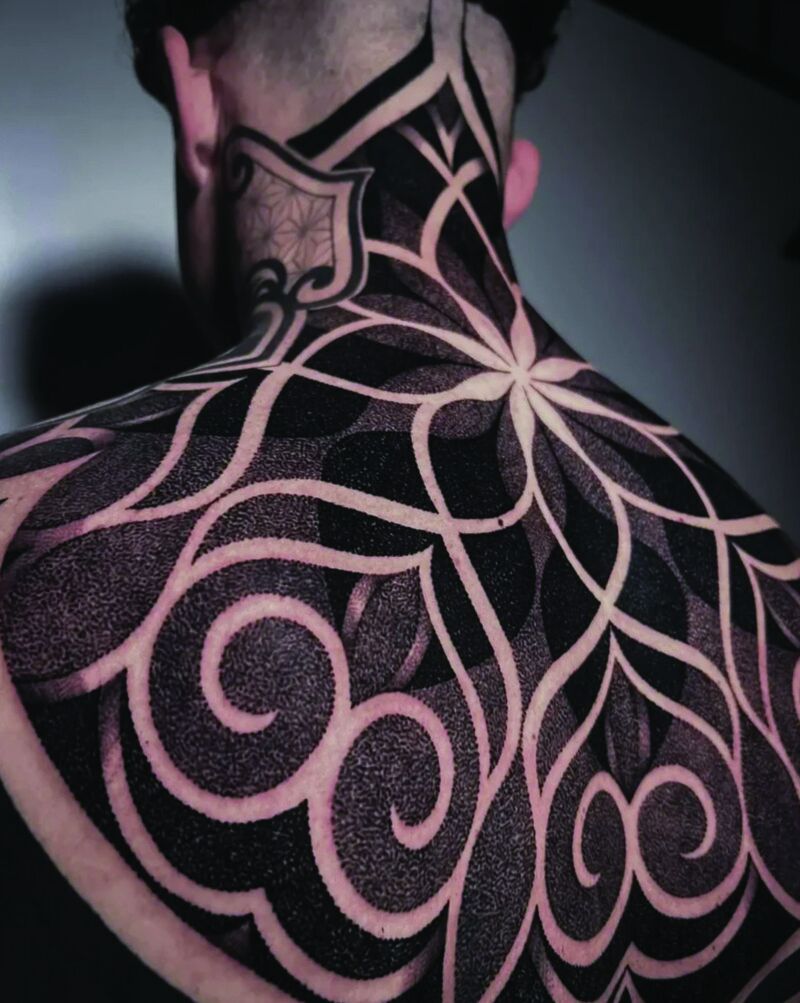
“The industry has evolved to an unrecognizable point from when I began tattooing back in 2009, let alone from its original roots,” says Melbourne tattoo artist Levi Barnett (@levi.b_tattooer). According to a February 2024 IBISWorld study, there are 1,860 tattoo businesses in Australia, rising 4.6% from 2019 to 2024.
Abundant Style
Australian tattoo culture, not unlike the American tattoo culture, is characterized by an extensive breadth and depth of styles and influences. Barnett, who specializes in realism tattoos, employs intricate, three-dimensional, lifelike details to items such as animals, movie characters, and celebrities that are tangible — seemingly staring back at you and into the depths of your soul.
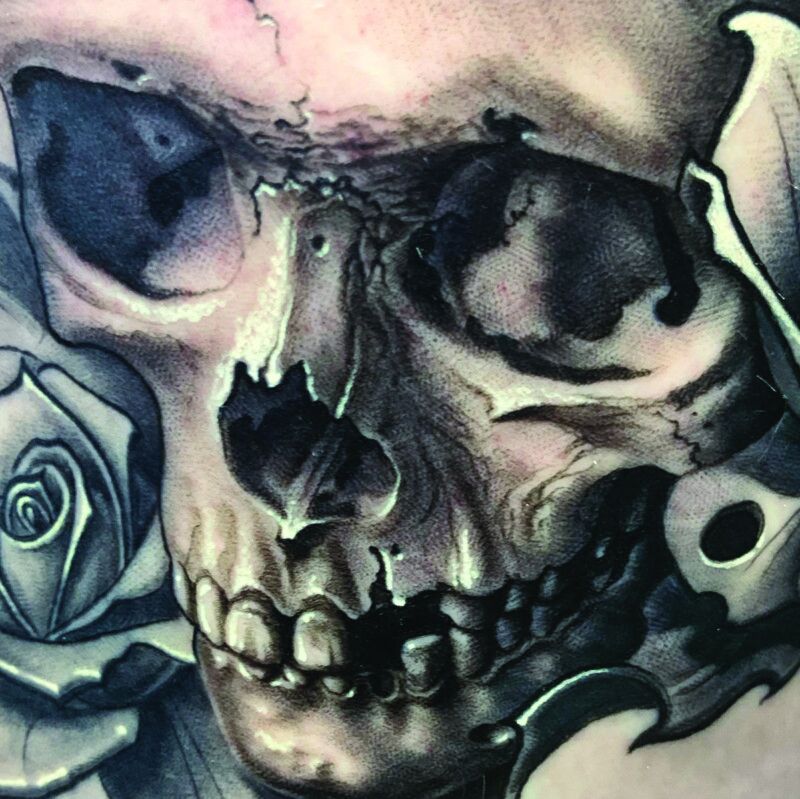
According to Australian Tattoo Expo experts, many of today’s tattoos are inspired by cartoons and graffiti, and “…pixel art, which wouldn’t have been understood 50 years ago, has emerged with the advent of computers striving to create smooth images.”
Many Australian artists specialize in designs featuring native flora and fauna, reflecting the country’s unique biodiversity. Dotwork techniques, using tiny ink dots to create intricate patterns, has gained popularity for its versatility in representing both natural elements and Aboriginal-inspired designs. Australia’s diverse immigrant population has introduced various tattooing styles from around the world, creating a melting pot of artistic expressions.
Technology and Tattoo Expos
The Australian tattoo scene has embraced technological advancements, enhancing both the artistry and the client experience. Improved tattoo machines allow for more precise and intricate designs, and advanced ink formulations offer more vibrant and longer-lasting results. Digital design software has become an integral part of the creative process for many artists, with helpful features such as AI image generation and color adjustment technology, which saves time and streamlines difficult projects.
Social media platforms, particularly Instagram, have become crucial for artists to showcase their work and connect with potential clients. “To see tattooers go from fringe characters to influencers and borderline celebrities has been wild,” Barnett says. Think Dr. Woo (@_dr_woo_, also featured on page TK) and Megan Massacre (@megan_massacre).
The Australian Tattoo Expo, held annually in major cities across the country, has become a cornerstone of the nation’s tattoo culture. These events bring together hundreds of local and international artists, attracting thousands of enthusiasts. The expos feature live tattooing, competitions, and performances, serving as a celebration of tattoo artistry and a platform for artists to showcase their skills.
The August 2024 Perth Tattoo Expo saw around 450 of Australia’s and international guest tattoo artists, highlighting the global nature of the contemporary tattoo scene. These events not only provide expo-goers opportunities to get tattooed by industry leaders but also foster connections within the tattoo community.
The Future Forecast
As the tattoo industry has grown, so has the focus on regulation and safety. Australia has strict licensing requirements for tattoo artists and studios, with health and safety standards aimed at reducing the risk of infection transmission that are generally more uniform across states, when compared to some other countries. This regulatory environment has helped to professionalize the industry and ensure higher service standards for clients.
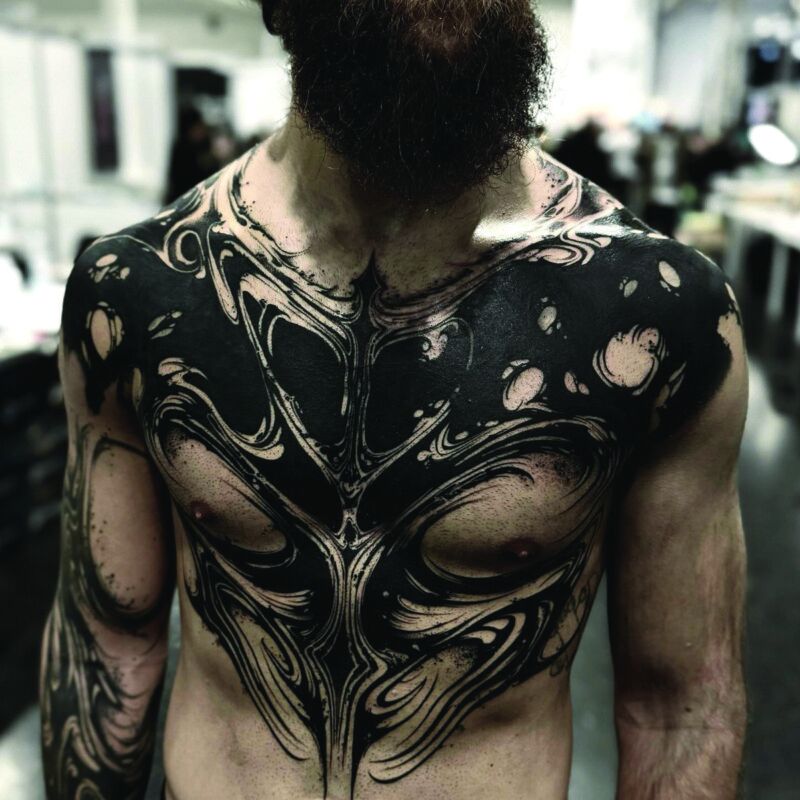
Despite its growing popularity, many Australians might rethink their ink. In a survey of 500 Australians, McCrindle, a research service organization, found that 1 in 3 Australians with tattoos regretted, to some extent, getting a tattoo.
As for Indigenous-inspired designs, there’s an ongoing dialogue about cultural appropriation and the importance of respecting traditional practices and meanings. With the increasing number of tattoo artists and studios, there’s growing competition within the industry, potentially affecting the livelihoods of practitioners. However, healthy competition breeds innovation. Barnett says, “Every day I see new artists who are hungry and driven by passion to push this to a level I never thought possible.”
Looking ahead, several trends are likely to shape the future of Australian tattoo culture. As societal attitudes continue to evolve, tattoos are likely to become even more widely accepted in professional and social settings.
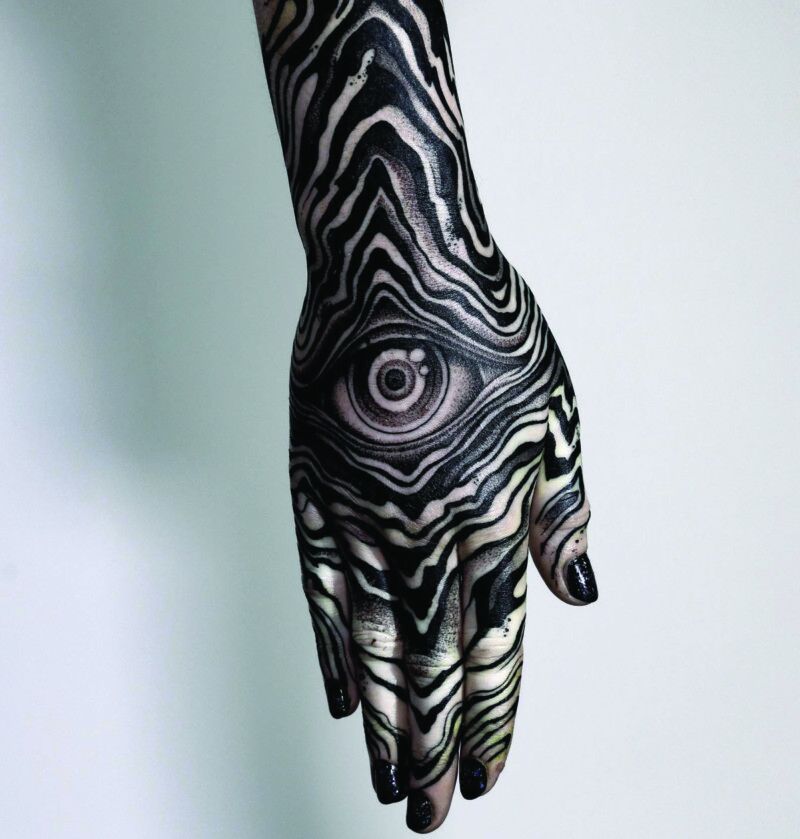
Advancements in tattooing technology, including potential developments in temporary or easily removable tattoos, may further broaden the appeal of body art. The ongoing interest in Indigenous Australian tattoo practices may lead to a deeper exploration and revival of traditional techniques and designs.
As environmental consciousness grows, there is an increased demand for eco-friendly inks and sustainable practices within the industry. While aesthetic appeal remains important, there’s a growing trend toward tattoos that hold deep personal significance, reflecting individual stories and experiences.
Today’s Australian tattoo culture is a vibrant, diverse, and evolving landscape that reflects the country’s unique blend of traditions and contemporary influences. From the bustling tattoo expos in major cities to the intimate local studios, tattoo artistry has become an integral part of Australia’s cultural expression.
As the industry continues to grow and evolve, it faces both exciting opportunities and important challenges, ensuring that the Australian tattoo scene remains dynamic and engaging for years to come.
The acceptance and popularity of tattoos in Australia today represent more than just a trend; they reflect broader shifts in societal attitudes toward personal expression, art, and cultural identity. Moving from the margins to the mainstream, tattoos offer a unique lens through which to view the changing face of Australian culture in the 21st century.
Craving more articles like this? Check out our other content here.
INKcognito: Halloween Costume Reveals Unmasked
Halloween isn’t just for horror flicks and candy corn—it’s a time for our favorite tattooed celebs to get creative and pull out all the stops with their costumes! You saw the masked teasers and hints on our social media, and now the mystery is finally solved. From E.T to Ratatouille, we’re revealing the faces behind these epic transformations. Head below to see who’s who in each spooky getup!
Truly Halloween Special | TRULY
SUBSCRIBE to Truly: http://bit.ly/Oc61Hj Truly presents the best of its Halloween themed episodes in this special livestream.
Source from https://www.youtube.com/watch?v=smfYOhiNZjw
Music to His Ears – InkedMag
“I almost died running just now,” Darren Waller said as he sat down to interview with Inked Magazine. On that August morning, temperatures reached 113 degrees in Las Vegas, according to The Weather Channel, so running on the treadmill with the garage open might sound like a risky endeavor to most. But one thing’s for certain: Waller doesn’t shy away from rolling the dice.
Living in Sin City, a place where one might think a recovering addict could struggle with sobriety, Waller said, “I couldn’t imagine a better place for my recovery and my growth. I feel like I’ve done nothing but slowly grow over time as a person since living here.”
If you aren’t already acquainted, Waller was a football star in the making in high school. He continued his education and brought his athletic acumen with him to Georgia Tech where he transitioned from wide receiver to tight end, ultimately being drafted in 2015 by the Baltimore Ravens.
During his storied NFL career, Waller made headlines on and off the field for his extraordinary athleticism, but also for his personal struggles, which resulted in a suspension for violating the NFL’s substance abuse policy. After a year-long suspension, breaking news stories flipped, highlighting his successful rehabilitation, his move to the Oakland Raiders (now Las Vegas Raiders), his impressive development on the field, and the creation of The Darren Waller Foundation, a nonprofit that supports youth and their families through the journey of addiction recovery.
But what might be the biggest newsflash about the extensively inked sports star came in June 2024 when, after nearly 10 years of traversing peaks and valleys as a professional footballer, Waller posted a video on YouTube announcing his retirement from the NFL. Leaving behind his Raider Nation fanbase and a $30 million three-year contract, Waller resolved to run the ball toward a different goal: an aspiring music career.
“People close to me [already] knew. I just wanted to share with the world and be authentic because a lot of people supported me — a lot of teams, organizations, fans —and relate to me in a lot of ways. I just wanted to be authentic in how I was leaving,” he explained.
What many people might not know is, behind the scenes, Waller has been writing and recording songs nearly as long as his NFL career, and he comes from a musical lineage that includes his great-grandfather, Thomas “Fats” Waller, a popular jazz pianist and singer from the early 1900s. “We grew up with pictures of him around the house,” he said. “But when I really learned all about my great-grandfather was my senior year of college. I had a jazz history elective class and the professor was like, ‘You know, you need to pay attention. This is your family legacy.’ And it kind of planted the seed.”
Before his YouTube announcement, Waller had “a very sobering experience” when he had a health scare that resulted in a three-day stay at the hospital, giving him ample opportunities to re-examine his life. He asked himself if he would be satisfied with his life story if it all ended at that moment. “I was like, hell no. I’m not OK with where life is going,” he shared. “I’m just out here, still playing football, just for the sake of validation from people and because it’s comfortable. And out of fear; if I walked away, people would say all types of things, which they did. People have all kinds of opinions, I’m sure. But it’s like, why am I afraid to do this for myself? Why am I so reliant on what other people think?” He told himself, “Yep, it’s time for a change.”
Waller released several songs and music videos in recent years, and his new album, set to release at the end of 2024 or the beginning of 2025, is aptly called “I’m Not Even Who I Am Yet.” “And that’s like the mic drop for where I’m at in my life, you know?” he explained. “I still feel like I’m evolving and growing and finding out who Darren Waller is ultimately. So, that will be the title and tracks that revolve around that theme. Tracks that are already done, tracks that are in the works.” Strap on your helmet — Waller has a few things to share about his music, his tattoos, and where he is now.
You have transitioned from football to the music world. How’s that been going?
It’s been a lot of fun — a lot of fun. I’ve enjoyed creating music for a long time. It’s honestly brought me a lot of joy more consistently than football has. It’s weird because you don’t want to show that people, they’ll think that you’re not interested in football or you’re just there for the money, which I wasn’t — I’ve always been committed to the game and given my best. But the joy kind of fades after a while. I’ve been playing the game since I was 4; so having more time to devote to music has been a lot of fun; a lot of learning because I don’t know anything about this world or this side of things. So thankfully I have a team of people that are helping me out tremendously as I navigate this. I just love creating and I have more time to do it. My confidence is growing and I’m just excited to share more with people and just you know be in a chapter of my life where I feel like this is my most authentic self.
But it doesn’t come without a little bit of grief of you know what football was — the comfort it provided, the familiarity of it. It was very safe in a way. It’s a very violent game, but in a way it was safe because I knew what I was doing and it ensured validation. But I’m excited about my music journey. It’s a new chapter and I’m just out here just seeing how it goes.
How do you find your inspiration for your music?
My inspiration comes from so many different sources: my real-life experiences; the ups and downs of my life. I listen to damn near every genre of music, so I could listen to something that has no relation to what I may be doing, but it may just inspire me in some weird way that helps me to create something. Inspired by being on a spiritual journey now, since I got sober. So, a lot of principles from that has impacted the way that I want to present myself on records and the things that I want to say and get across. So, inspiration comes from everything — a simple conversation with a stranger or somebody I’ve known for a long time. I’m grateful that there’s so many things that can inspire me and it’s not just like a limited scope.
What kind of stories can you share about your tattoos?
[Listening to the lyrics of my own] music was almost affirmations for my future or who I will grow into. And the same thing for a lot of the tattoos that I have. Things that I put on my body that… I wasn’t necessarily those things at the time, but they were symbols of what I wanted to be, who I wanted to be, how I wanted to show up. It just 1730306062 popped into my head because they all have some sort of meaning as I look at them now.
I was getting a bulk of my tattoos done in the time when I was suspended and kind of early on in my career when I started to really take off. It was another way for me to express myself through times of difficulty where a lot of times I really didn’t have the words for it. But putting it on my body was a way for me to express that and develop a sense of comfort with it because now it’s literally almost head to toe.
What else is on the horizon? Is it true that your music and nonprofit are your primary focuses now and what you plan to do forever? Or, do you say nothing is forever and you never know if you might change your mind?
You make a valid point. I love writing right now and I feel like it’s something I’ll always do. There may be a point where I might be done releasing to the public and I’ll just make what I feel inspired to make in my home and just ride around to what I make. For right now, yeah, I definitely feel like there’s a journey for me in this to go on and learn from and just share with people.
I’ll definitely be spending a lot of time traveling. I love hiking and going to the mountains; I’m going to Japan in a month for 10 days. My sister just had my nephew and he’s like 4 months old. I’m going to see him this weekend and just plan on being around them a whole bunch, so just do a lot of things I haven’t been able to do. I’ve just been grinding, grinding, grinding my whole life and now I get to enjoy it. Looking forward to it.
Looking for more articles like this? Check out our other content here!
15 Years in the Making: Chris Trovador’s Journey from Tattoo Artist to Comedy Show Creator
In the world of tattoos, few artists have dared to combine humor and ink in a way that pushes boundaries and captivates audiences. Chris Trovador, the creator of Ink Addicted, a unique comedy show based on his life as a tattoo artist, has spent 15 years weaving together his passion for tattooing, music, and comedy into a creative tapestry that is unlike anything seen before. His journey from a shy apprentice to a show creator has been marked by struggle, resilience, and a relentless pursuit of self-expression.
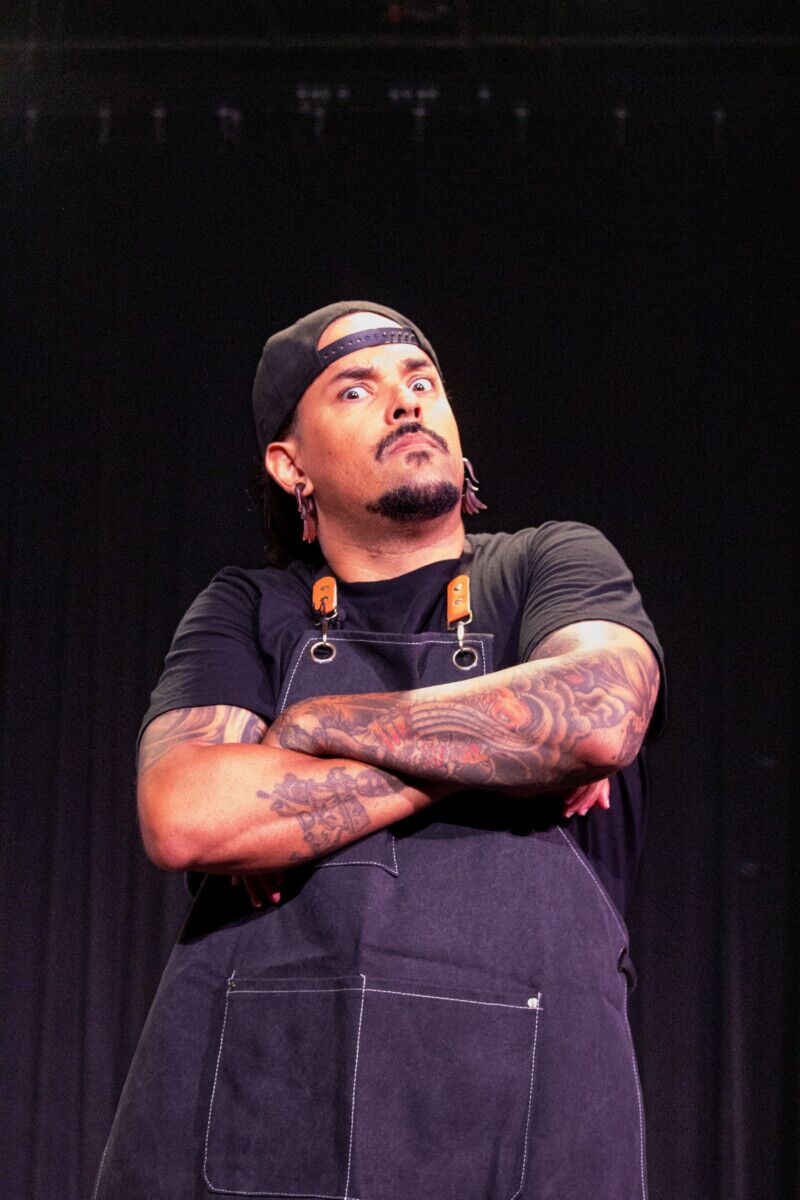
The Beginnings
Trovador’s journey into the world of tattoos started as a child with a passion for drawing. From the moment he could hold a pencil, he was sketching characters like Bugs Bunny, Sonic the Hedgehog, and Ninja Turtles. Growing up as an only child in a strict, religious household, tattooing wasn’t exactly encouraged. Yet, after high school, inspired by the popular show Miami Ink, Trovador decided to pursue tattooing.
However, his path wasn’t a straight line. Before picking up a tattoo machine, Trovador explored the world of music, writing poems and producing beats, which eventually earned him a scholarship to the Florida Institute of Recording Arts and Technology. His time there taught him the art of live performance and sound engineering, lessons that would prove invaluable later in his career.
After working multiple jobs and facing financial instability, Trovador realized that his passion for tattooing had never faded. Armed with his sketchbooks, he approached several tattoo shops, only to be rejected—until Danny Wells at Stigma Tattoos gave him a chance. This opportunity marked the beginning of a new chapter in Trovador’s life.
From Music to Tattooing: How the Two Connect
Trovador believes that music and tattooing are two sides of the same coin. “You start with an idea or vision, and then you figure out how to make it real,” he says. Both forms of art require deep focus, a mastery of technique, and a drive to tell a story. For Trovador, both tattooing and music are about self-expression and connecting with people. These experiences in music helped him approach tattooing with a unique perspective—one that allowed him to blend his talents in ways that were far from conventional.
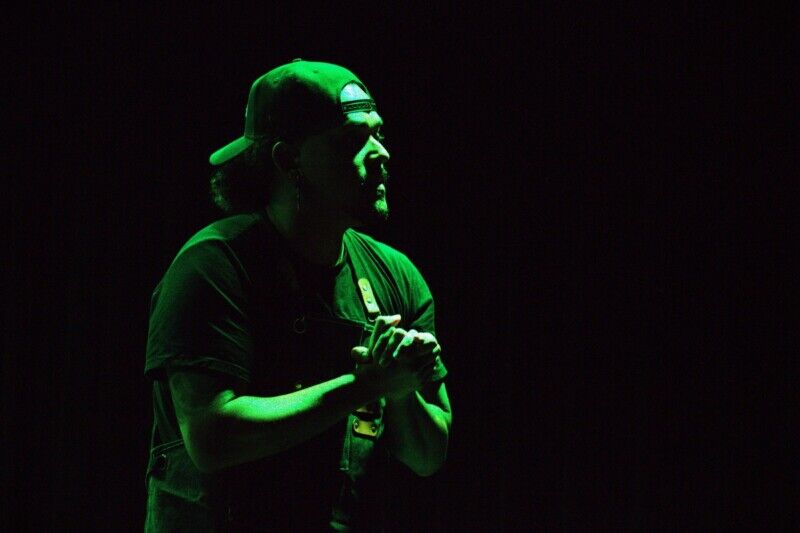
Tattooing & Comedy Fusion
While tattooing may have been his main career, Trovador was always the jokester. As an apprentice, he was initially focused on being taken seriously, but his mentor encouraged him to let his humorous side shine. “I’d joke around with clients, dance while I created a stencil, or even rap for them,” he recalls. His lighthearted energy made his clients feel comfortable, turning each session into an experience that was as fun as it was artistic.
One memorable moment stands out: “This older woman was nervous about getting her first tattoo. So I told her, ‘If it hurts too much, just squeeze my hand.’ Then, I pulled out a silicone fake hand that I practiced tattooing on. She laughed so hard the nerves disappeared,” he says. It’s these little moments of improvisation that eventually inspired Trovador to create Ink Addicted, where he fuses tattoo culture with stand-up comedy and live performances.
Recently, Trovador reflected on his involvement in the Melrose Film Festival as a guest panelist, discussing his creative process as both a writer and creator. His short film No Refunds, about a tattoo artist dealing with a client who can’t handle the pain, was showcased, and he was thrilled to work with the crew from The Only Productionz to bring his vision to life. ‘I’ve always been a big fan of Jackie Chan, so it was awesome to do some action stunts,’ Trovador added.
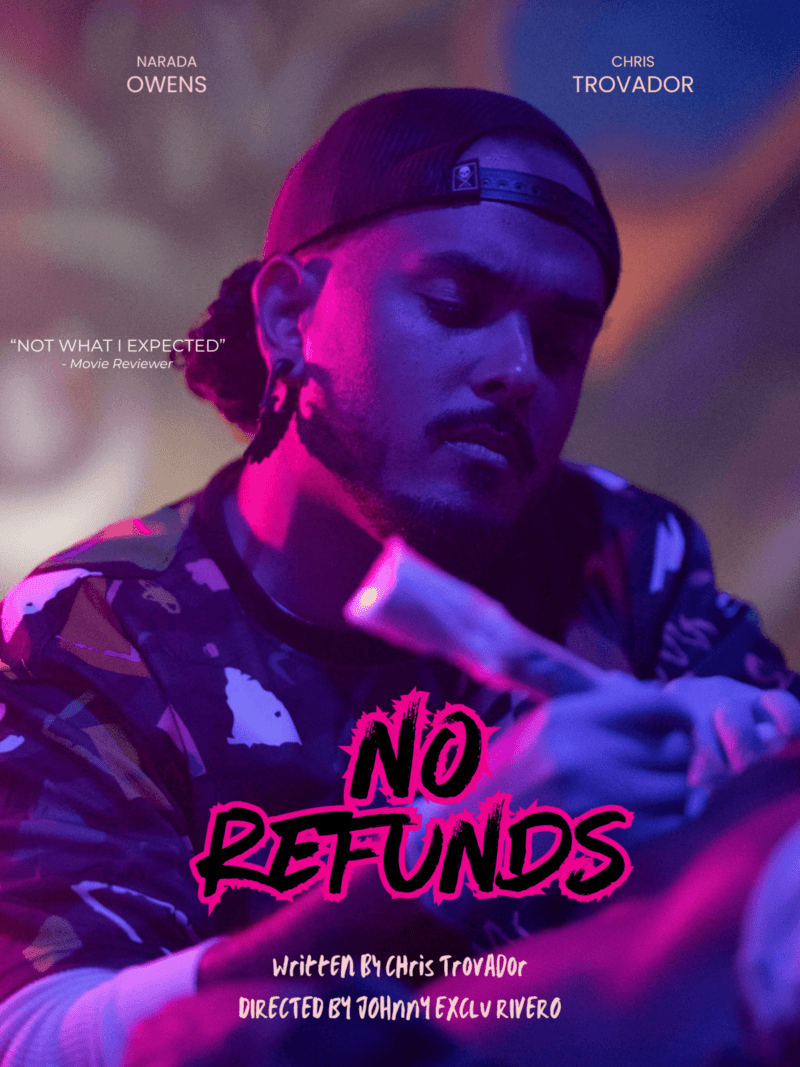
Overcoming Doubts & Struggles
Despite his success, Trovador faced doubt from fellow artists who didn’t understand his passion for comedy. “They would say things like, ‘Why the hell do you continue to do comedy? Stick to tattooing, man.’” Early on, the criticism stung, but Trovador kept pushing. As he began making waves in the entertainment world, the doubts of others only fueled his drive. “I realized people project their own insecurities. I’m more afraid of not living to my fullest potential than I am of trying something new,” Trovador explains.
One of his biggest challenges in creating Ink Addicted was writing the show itself. As a perfectionist, he struggled to narrow down years of funny anecdotes and tattoo-related stories into a cohesive performance. With the help of his director, Frank Caeti, Trovador was able to craft a show that blends comedy, tattooing, live art, and even moments of vulnerability. “Being emotionally open on stage in front of strangers is hard,” he admits, but it’s part of what makes Ink Addicted so powerful. The show is not only about the laughs—it’s about the human experience.
Ink Addicted: Bringing it Full Circle
In 2023, Trovador’s vision for Ink Addicted came to life, thanks in part to a sponsorship from The United Arts of Central Florida. The show became a hit, blending tattoo culture, comedy, and live performance into a unique and entertaining experience. “I wanted to create something that was evergreen, something I could perform for years,” Trovador says.
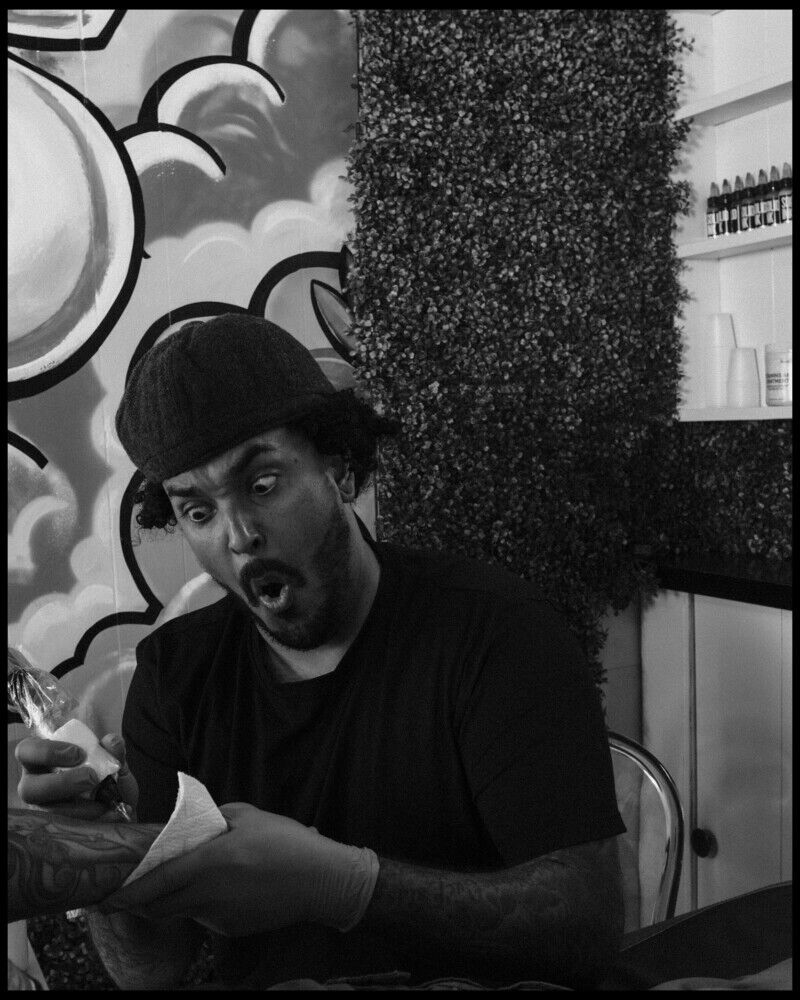
For Trovador, the ultimate goal isn’t just to entertain, but to elevate the intersection of comedy and tattooing. He sees social media trends forcing tattoo artists to create entertaining content, but Trovador is looking beyond the gimmicks. “I want to leave my mark on entertainment, to redefine the boundaries of comedy and tattooing.”
Looking Forward
After a successful international tour with Ink Addicted, Trovador reflects on how far he’s come. “Man, I was just relieved I survived the tour!” he laughs, recalling the intense preparation involved in taking his show on the road. One of the highlights came near the end of the tour when, despite spraining his ankle, Trovador powered through the pain to finish his performances. “I limped on stage, but as soon as the adrenaline kicked in, I forgot all about it.”
Fifteen years into his career, Trovador has successfully blended his passions for tattooing and comedy, creating something truly original. Through doubt, struggle, and relentless creativity, he’s redefined what it means to be a tattoo artist in the modern world. Ink Addicted is more than just a show—it’s the culmination of a life spent pushing the boundaries of art, humor, and self-expression.
Trovador’s journey shows us that when you follow your passions—no matter how unconventional—you can create something that resonates deeply with people and leaves a lasting mark on the world.
Find more articles like this, here!




